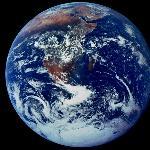
Ocean-healing 3D agriculture and forestry: Earthuse with Marine Agronomy by Ocean Foresters
 Mark Capron Jul 31, 2014 11:41 | Proposal contributor
Dear Dr. Malone,
This year's Climate CoLab appears quite successful with many "out of box" proposals. We appreciate the stress many diversified proposals place on the judges. The following story and thought exercise might bring each judge comfort with their decisions.
After a Great Fire in London, the king asked Sir Christopher Wren to rebuild London’s churches.
Wren surrounded himself with a team of accomplished craftsmen. Still, the work required so many workers that quite a few did not know the great architect on sight.
One day, while Wren was overseeing work on St. Paul's Cathedral -- he took a walk among the workers and talked to them. Wren approached one stonecutter and asked, "What are you doing?" The man replied, "As anyone can see I'm hewing stone!" Wren put the same question to a second stonecutter who said, "I'm earning five shilling two-pence a day." Finally, Wren asked a third stonecutter, "What are you doing?" And the man answered, "I'm building a great cathedral."
Building a middle ages cathedral is a decent analogy for solving Climate Change. Near the time of this story, one generation would start the cathedral and future generations would finish it. Whole communities participated in building a cathedral, communities just like you are organizing to find innovative and complete solutions to Climate Change with Climate CoLab.
The thought exercise consists of asking yourself questions related to your role in Climate CoLab:
Who am I in the story?
What am I doing?
|
 Mark Capron Jul 31, 2014 08:47 | Proposal contributor
Scientists are discussing yet another sudden GHG-triggered disaster which suggests our use of land (and water) need to be even more robust in the face of rapid Climate Change than we have been considering.
Yet another GHG-triggered disaster would be a repeat of the Laki, Iceland volcano eruptions of 1783. These eruptions appear to have caused drought-based starvation as far as Egypt and Japan in addition to starvation on and closer to Iceland. See http://volcanism.wordpress.com/2011/06/08/on-this-day-the-laki-eruption-begins-1783/. The scenario is:
1. The weight of Iceland's glaciers suppress volcanic eruptions.
2. GHG-warming melts the glaciers and relieves the restraining pressure.
3. The volcanoes erupt sooner then they would if the glaciers were intact. In 1783, the volcanoes blew even with all the ice pressure. While, it may take 200 years for the glaciers to disappear [http://all-geo.org/volcan01010/2012/01/icelands-melting-glaciers-and-other-stories/], the geologically sudden release of confining pressure could trigger an eruption any year now.
Ocean-based agriculture and forestry is more robust than land-based agriculture and forestry for reasons explained in this proposal. Further, ocean-based agriculture and forestry is an opportunity to make land-based agriculture and forestry more robust.
|
 Climate Colab Aug 6, 2014 12:31 |
This is a weak attempt to get support for a different proposal on seaweed forests submitted to the global context. And they are wrong to say that the oceans have been neglected here. In fact several of the individual contests have had oceans proposals submitted, including the one that they are promoting. This is not supportable.
---
(1) It is a very complete list of items that are addressed in this presentation. It provides a very nice description of the activities. About 20 million tons/yr of seaweed is now farmed worldwide, almost all in Asia. But this is only 0.3% of food farmed on land. Yet the oceans cover 70% of Earth. This vast space can be more effectively used to sustain humanity. This is not a new idea, the U.S. Marine Biomass Program having done pioneering work in this area in the 1970s. What is new is appreciation of the urgency to find climate-change-immune food security, and advances in aquaculture techniques that make the prospect of oceanic farming more ocean-healing.
(2) There is no information on emissions reduction in “How much will emissions be reduced or sequestered vs. business as usual levels?
(3) It also expects no proposal costs. Claims that marine agronomy can be profitable throughout the world. Costs are not reported in the text.
|